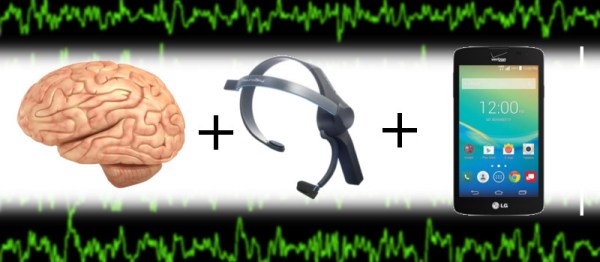For those that suffer them, seizures are a dangerous thing. Outside the neurological effects, there is always the possibility of injury from the surrounding environment as well – consider the dangers of having a seizure near a busy road, or even simply a glass table. Some detection methods exist for seizure sufferers, but they are primarily based on detecting the jerking motion of the patient. [akhil2001us] thinks it’s possible to do better – by measuring brainwaves to detect the onset of seizures.
The build is centered around the Neurosky Mindwave headset. This is an off-the-shelf product designed specifically for capturing EEG data. It outputs raw brainwave data which is key for doing proper analysis. The project then uses an Arduino Mega to tie everything together, along with some Sparkfun Bluetooth modules to talk to a cell phone to send an SMS for help in the event of a seizure.
The real difficulty in a project like this comes from developing an algorithm that can reliably detect seizures, as well as a unit robust enough to work in the real world. It’s no use if your headset is detecting a seizure in progress, but the help message is never sent because a wire fell out of your breadboard. It’s considerations like this, combined with the threat of litigation, behind why medical devices are so rigorously engineered and certified. For a proof of concept, however, such concerns are not as important.
We’ve seen Mindwave builds before – brainwave research is an exciting field!
















